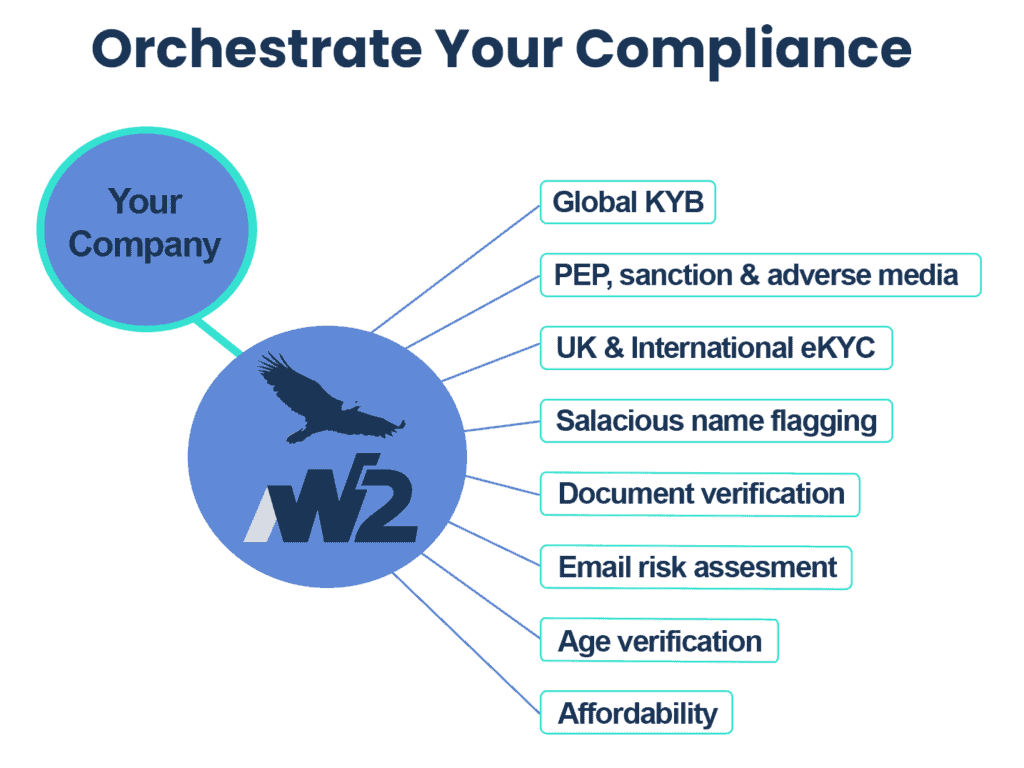In the world of cryptocurrency, the need for transparency and security has become paramount. As the popularity of cryptocurrencies rises, so do concerns about illicit activities, fraud, and money laundering. To address these challenges, the concept of KYC (Know Your Customer) in crypto has gained significant importance. To best understand the identities of customers and prevent reputational damage by dealing with fraudulent individual, it’s vital for crypto exchanges to understand the fundamentals of KYC in the context of cryptocurrencies, its significance, implementation, and impact on the crypto ecosystem.
Understanding KYC in Crypto
How Does KYC Regulation Work in Crypto?
As cryptocurrencies gained popularity and mainstream recognition, regulatory bodies worldwide recognized the need to implement Know Your Customer (KYC) regulations in the crypto space. These regulations aim to address concerns related to money laundering, terrorist financing, and other illicit activities associated with the anonymity of cryptocurrency transactions. KYC regulation requires cryptocurrency exchanges, wallet providers, and other crypto-related businesses to verify the identities of their customers before allowing them to use their services.
One of the key objectives of KYC regulation in the crypto industry is to enhance security and transparency. By collecting and verifying customer information, businesses can ensure that their platforms are not misused for illegal purposes. This not only protects the integrity of the crypto ecosystem but also safeguards users from potential scams and fraud.
KYC regulation is a crucial aspect of achieving compliance with anti-money laundering (AML) and counter-terrorist financing (CTF) laws. Implementing KYC practices allows crypto businesses to demonstrate their commitment to regulatory compliance, mitigating the risk of legal repercussions and enabling smoother interactions with traditional financial institutions.
While KYC regulation is widely accepted as necessary for the growth and legitimacy of the crypto industry, it also raises concerns among privacy-conscious individuals. Providing personal information to third-party platforms may be perceived as a threat to user privacy. Therefore, finding a balance between regulatory requirements and user privacy concerns remains an ongoing challenge for the crypto community.
Despite the challenges, KYC regulation plays a pivotal role in establishing a more secure and trusted cryptocurrency environment. As the crypto space continues to evolve, collaboration between industry participants and regulatory authorities will be essential to strike the right balance between compliance and preserving the fundamental principles of privacy and decentralization that underpin cryptocurrencies.
There has recently been some dispute in Parliament within the UK as ministers’ debate over whether crypto should be treated as a form of gambling or a financial institution.
The implementation of regulation has been delayed due to many debates around how to handle crypto as a regulatory category. There are many consultations in place to try and find a workable solution which will be embraced by the industry.
Despite unclear regulation, it is vital for crypto exchanges to implement a solid KYC process to understand the identity of their consumers and prevent reputational damage.
What is KYC in Crypto?
KYC, or Know Your Customer, is a process that financial institutions and crypto-related businesses employ to verify the identities of their customers. This verification process is essential for preventing money laundering, terrorist financing, and other illegal activities involving cryptocurrencies. By collecting and verifying customer information, companies aim to ensure that their platforms are not misused for illicit purposes.
The Significance of KYC in Crypto
Crypto transactions operate on a decentralized and pseudonymous nature, allowing users to maintain a level of anonymity. While this feature is desirable for privacy-conscious individuals, it has also attracted malicious actors seeking to exploit these characteristics for illicit gains. This is where KYC comes into play, adding an extra layer of security and transparency to the crypto space.
The Implementation of KYC in Crypto
The process of implementing KYC in the crypto world typically involves three essential steps:
- User Registration: When a user signs up for a cryptocurrency exchange, wallet service, or any other crypto-related platform, they are required to provide basic personal information such as name, address, date of birth, and contact details.
- Document Verification: Users must submit valid identification documents, such as a passport, driver’s license, or government-issued ID, to confirm their identity. Advanced AI-based technologies are often employed to ensure the authenticity of these documents.
- Screening and Approval: The submitted information and documents undergo thorough screening and verification to assess the user’s risk profile. Once the KYC process is successfully completed, the user can access the platform’s services.
The Impact of KYC on the Crypto Ecosystem
Integrating KYC practices within the crypto ecosystem has several positive effects:
- Security Enhancement: KYC measures reduce the risk of fraudulent activities and identity theft, making the crypto space safer for all users.
- Regulatory Compliance: Adhering to KYC regulations enables crypto businesses to comply with anti-money laundering (AML) and counter-terrorist financing (CTF) regulations, preventing potential legal repercussions.
- Legitimacy and Trust: KYC instils a sense of legitimacy and trust among users, attracting more mainstream adoption and investment into the cryptocurrency market.
- Reduced Market Manipulation: With verified user identities, the likelihood of market manipulation and insider trading is diminished, promoting fairer and more transparent trading practices.
Challenges and Concerns
While KYC implementation offers numerous benefits, it also presents challenges and concerns:
- User Privacy Concerns: Some crypto enthusiasts are wary of providing personal information, fearing it could compromise their privacy. Whilst this uncertainty is present now, crypto must become regulated if it is to success in the long term.
- Data Breaches: Centralized platforms that store user data may become targets for hackers, potentially leading to data breaches and identity theft. It’s important for crypto exchanges to use a secure platform, such as W2’s, to hold data on customers.
- Delays and Inconvenience: A manual KYC verification process can be time-consuming, causing delays for users who want quick access to crypto services. Therefore, it’s important for crypto exchanges to implement automatic and electronic KYC to ensure a smooth onboarding journey for customers.
How Can W2 Help?

W2 offers a global electronic KYC solution as part of an orchestration platform, which includes data in over 170 countries globally. The solution can be integrated via a single API to enable businesses to gain real-time access to the information required to onboard a customer. Information on all data checks performed are stored securely on W2’s online portal for audit and remediation purposes, where there is also the option to perform ad-hoc checks.
The solution provides the following benefits to crypto exchanges:
- Global coverage – over 170 country and regional data sets available.
- Access to multiple global suppliers with thousands of local data sources.
- Failover and waterfall options ensuring maximum match rates, with minimum downtime.
- Accurate matching to meet global regulatory standards.
- Immutable audit trail, reporting and alert remediation.
- Integrate AML PEPs and Sanctions, fraud prevention, and document verification services alongside eKYC to maximise onboarding success.
To learn more about W2’s Know Your Customer solution and how we can help your business stay compliant with regulation and protect reputation, please contact us today. Simply submit the contact form here, and one of the team will be in touch.

